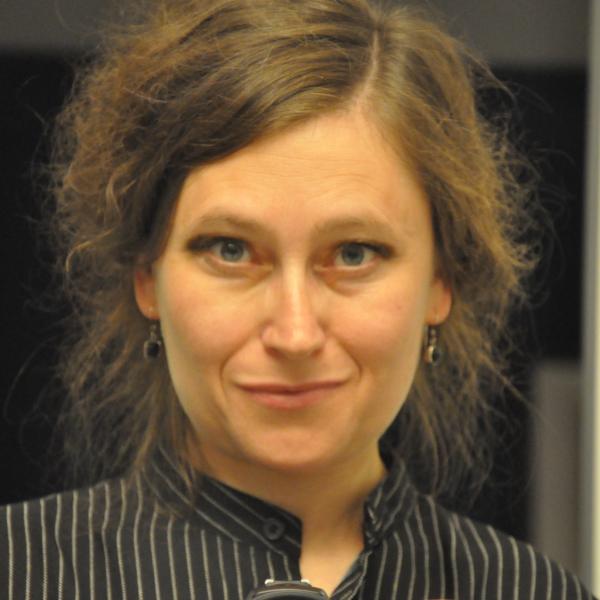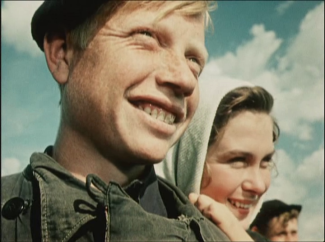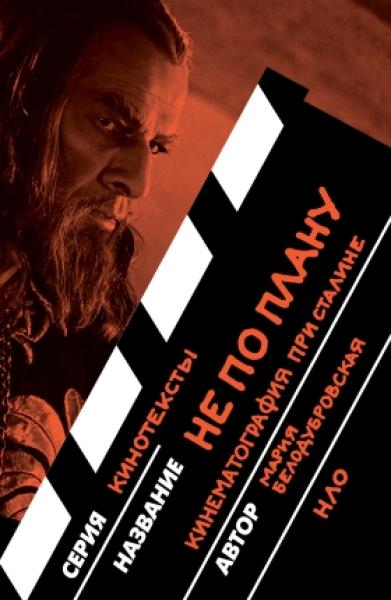
Biography

Maria Belodubrovskaya’s current work is on the history, theory, and aesthetics of Soviet cinema. Her first book, Not According to Plan: Filmmaking under Stalin (Cornell UP, 2017), is a revisionist history of Soviet filmmaking during the Stalin era (1930–1953) and an institutional study of how ideology structures cultural production. It examines five institutions of Soviet cinema—policymaking, production planning, directing, screenwriting, and censorship—to show that it was impossible to build a mass-producing culture industry while working with artisanal production methods, weak control mechanisms, and an entitled artistic workforce.
She is currently working on her second book, Jolly Fellows: Film Aesthetics and the Pleasures of Socialist Realism, which addresses Soviet film aesthetics during this same period. The book looks at Soviet cinema’s approach to style and narrative in comparison with Hollywood and other major film traditions. It seeks to challenge some received notions about Soviet film’s ideological conformity and socialist realism while showing how the Soviet cinematic tradition fits into the transcultural aesthetic discourse.
An additional research trajectory deals with fundamental questions of film aesthetics. Belodubrovskaya is working on a series of articles dealing with narrative pleasure. Her study of Sergei Eisenstein has revisited cinematic attractions as a function of narrative rather than spectacle. She has proposed that Alfred Hitchcock was the master of surprise, not suspense, for in practice, as opposed to in word, the director cared more about uncertainty than about suspense. Her essay on the language of film explores the minimal cinematic unit, and she is currently at work on a theory of the page turner.
Books
Articles
“Film Songs and the Split Theory of Soviet Cinema,” Journal of Cinema and Media Studies 66:1 (2026), forthcoming.
“Narration by Montage,” Observing Film Art, eds. Charlier Keil and Murray Smith (Rutgers University Press, 2026), forthcoming.
“Kino: The Cinema Weekly of Stalin’s Times,” in Global Movie Magazine Networks, ed. Eric Hoyt and Kelley Conway (University of California Press, 2025), 235–247.
“A True Language of Cinema,” Projections: The Journal for Movies and Mind 17:1 (2023), 28–38.
“The Master of Surprise: Alfred Hitchcock and Premise Uncertainty,” Projections: The Journal for Movies and Mind 17:1 (2023), 1–19.
“The Cine-Fist: Eisenstein’s Attractions, Mirror Neurons, and Contemporary Action Cinema,” Projections: The Journal for Movies and Mind 12:1 (2018), 1–18.
“Plotlessness: Soviet Cinema, Socialist Realism, and Nonclassical Storytelling,” Film History 29:3 (2017), 169–192.
“The Literary Scenario and the Soviet Screenwriting Tradition,” in A Companion to Russian Cinema, ed. Birgit Beumers (John Wiley & Sons, 2016), 251–269.
“Abram Room, A Strict Young Man, and the 1936 Campaign Against Formalism in Soviet Cinema,” Slavic Review 74:2 (2015): 311–333.
“Soviet Hollywood: The Culture Industry That Wasn’t,” Cinema Journal 53:3 (2014), 100–122.
“The Jockey and the Horse: Joseph Stalin and the Biopic Genre in Soviet Cinema,” Studies in Russian and Soviet Cinema 5:1 (2011): 29–53.
“Understanding the Magic: Special Effects in Ladislas Starewitch’s L’Horloge magique,” KinoKultura 23 (2009).
“Ekstsentrika stilia v kinokartine A. Rooma Strogii iunosha” [Eccentrism of Style in Abram Room’s A Strict Young Man], Tynianovskii sbornik 12 (2006): 318–338.
Entries
“Mashenka,” in Lexicon of Global Melodrama, eds. Heike Paul et al. (Transcript Publishing, 2022), 71–73.
“Amphibian Man,” in Directory of World Cinema: Russia, vol. 2, ed. Birgit Beumers (Intellect, 2015), 134–135.
Teaching
Autumn Quarter 2025
CMST 10100: Introduction to Film Analysis (T/Th 9:30 to 10:50)
CMST 26089/36089: Movies and Minds: Scientific Approaches in Cinema Studies (T/Th 2:00 to 3:20)
CMST 27299: Intensive Track Written Thesis Workshop
Winter Quarter 2026
CMST 28600/48600: History of International Cinema II: 1930 to 1960
Previously taught courses: History of International Cinema II: Sound Era to 1960 (CMST 28600), Film Propaganda (CMST 68820), The Films of Alfred Hitchcock (CMST 26500), Cognitive Approaches to Spectatorship (CMST 67006), Politics and Cinema under Authority (CMST 38800), Cinema in Theory and Practice (CMST 14503), and Film and the Moving Image (CMST 14400)


